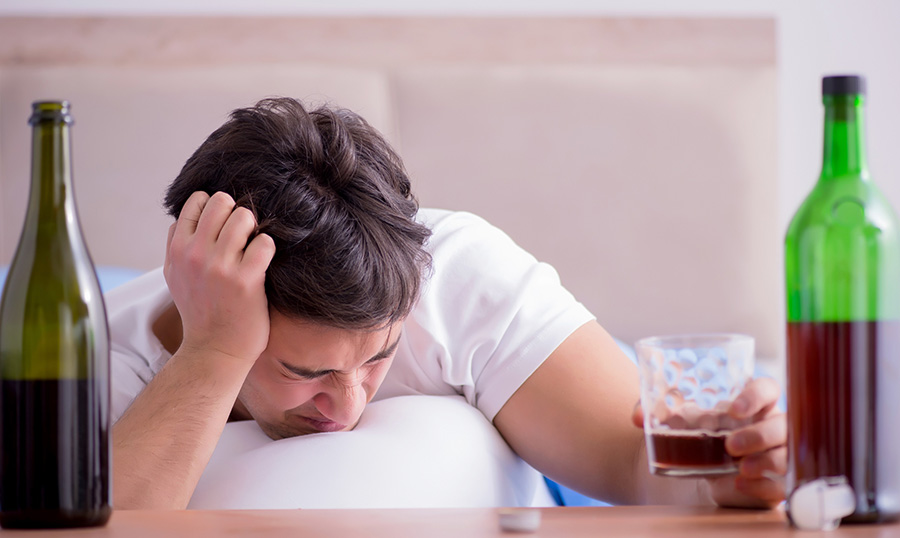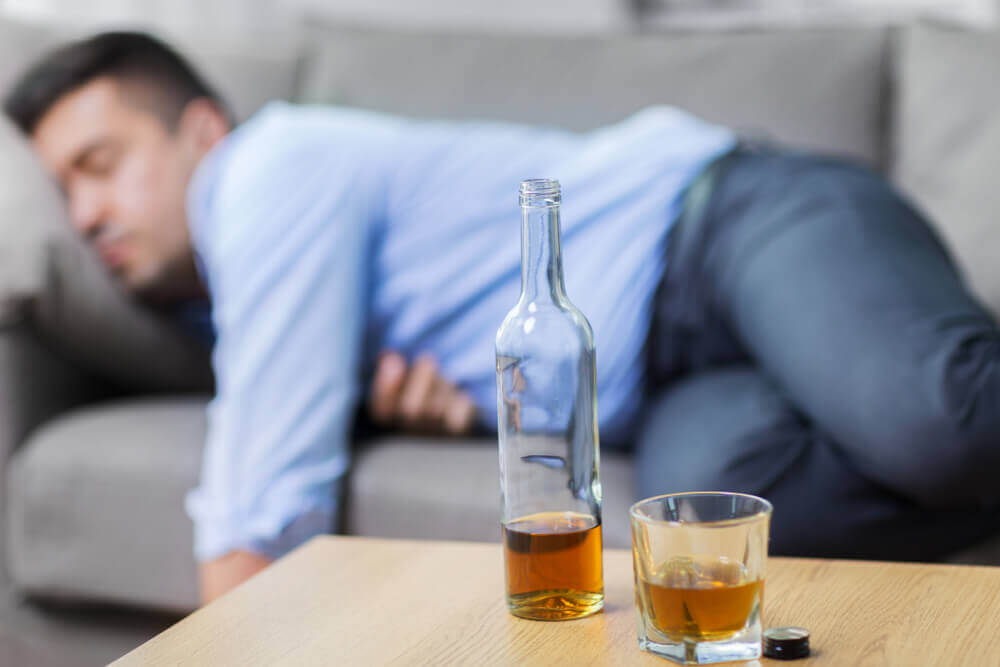Alcohol and sleep together can create a complicated effect. Their relationship is diverse and shares many factors. A lot of people prefer a nightcap to put them to sleep, while others think that alcohol disrupts sleep. There is a fifty-fifty ratio of people who have these thoughts, which is why it can be difficult to believe one thing.
In this article, we will be discussing some solid facts in the name of science. We will explore the effects and factors that alcohol plays on sleep. We will also be looking into the role of modification between these two sides. Let’s dive right in and uncover the truth about “Does alcohol make you sleepy?”
Table of Contents
ToggleThe Science Behind Alcohol and Sleep
There are a lot of things in our daily life which act as a depressant and have the potential to make our central nervous system slow down. Alcohol is one such thing that makes brain activity slow down, inducing an effect of drowsiness and relaxation. Alcohol consumption can lead to a sedative effect because it directly attacks the neurotransmitters. This is the scientific reasoning behind anyone feeling sleepy after drinking alcohol.
The Myth of the Nightcap
A nightcap refers to a drink taken after dinner and before bedtime to induce a better sleeping effect. This has been done for years and has been passed down to generations. Sure, alcohol can make you sleep faster, but it also has a major downside.
One major aspect of having good sleep is the quality of it, and that directly suffers when you drink before sleeping. Yes, that probably ruins the whole idea of a nightcap for you, but it’s true. Frequent awakening throughout the night may occur. This also hurts your mood after you wake up. This can directly result in you feeling fatigued throughout the next day. The cons of a nightcap outweigh the pros in reality.
The Sleep Stealer: REM Disruption
Another problem after drinking which is backed up by scientific research is the disruption of REM sleep after consuming alcohol. Rapid Eye Movement (REM) is a stage when you’re asleep which is related to dreaming and memory restoration. Alcohol has been known to disrupt the duration of your REM sleep and also decrease the intensity of it. This also plays a vital role in you waking up less refreshed after a night of heavy drinking.
Alcohol and Sleep Architecture

There are several studies that have proved that alcohol can mess with a person’s sleep architecture. This can lead to the person having light sleep stages and a lack of deep sleep. Sleep architecture is a structure that divides a person’s sleep into different cycles. This is what distributes a person’s sleep into different stages throughout the night.
The most important cycle is deep sleep which provides for a better immune function amongst other things. Alcohol can decrease that, and the reduction of deep sleep can cause major adverse effects on the overall health of a person.
The Hangover Effect
We all know the dreaded hangover and have experienced at least one or two really bad ones in our life. The physical symptoms can be horrible and painful, but little did we know a hangover can majorly affect a person’s sleep. Alcohol can lead to a lot of dehydration which can eventually make a person get up multiple times in a night. Even just the general effect of consuming alcohol can have anyone feeling groggy and disgusting the next day.
Individual Variations in Alcohol’s Effects
Everyone may have different variations on the effects of alcohol. Everyone is built differently, and one individual cannot be compared to another. The impact on sleep due to the consumption of alcohol can also vary. A lot of factors play a part in a body’s reaction toward something. The same can be said for the quality of sleep after drinking alcohol.
The Sleep Rebound: Alcohol Withdrawal and Insomnia
Alcohol can seem like a best friend concerning sleep initially, but that is not necessarily the case. A lot of people have reported insomnia after being sensitized to alcohol. Your body can process and eliminate alcohol which creates a rebound effect that causes insomnia. This occurs in heavy drinkers and addicts who eventually become dependent on alcohol to sleep every day.
Moderation: The Key to Sleep-Friendly Sipping
Many things in life require modesty in practice. Moderate and occasional alcohol consumption is safe, but drinking it regularly and in a larger quantity can lead to many adverse effects. Just like that, if consumed more often, the more it disrupts your sleep cycle. Drinking must be practiced several hours before sleeping so that the quality of sleep doesn’t get reduced. It is also important to drink in a hydrated body so that the negative factors can be eliminated.
Frequently Asked Questions (FAQs)
Does alcohol help you sleep?
Because alcohol directly targets neurotransmitters, it can have sedative effects. This is the scientific explanation for why anyone who drinks alcohol feels tired.
How does alcohol impact REM sleep?
The duration and intensity of your REM sleep have both been shown to be disrupted by alcohol. This has a significant impact on why you wake up feeling less rested after a night of excessive drinking or any drinking.
Why do I wake up in the middle of the night after drinking?
Alcohol use can cause significant dehydration, which may eventually force a person to wake up frequently over the night. Anyone who has consumed alcohol will likely feel drowsy and repulsive the next day as a result of the overall effect.
Can alcohol worsen sleep disorders like sleep apnea?
Alcohol can make sleep disorders, such as sleep apnea, worse. It eases the muscles in your throat, raising the possibility of an obstruction of the airway as you sleep, which can make the symptoms of sleep apnea worse.
How much alcohol is safe to drink before bedtime?
Drinking should not be done right before bed to maintain the quality of your sleep. Additionally, it is crucial to stay hydrated to completely get rid of the harmful elements.
Conclusion
Alcohol may first look like your finest sleep buddy, but that is not always the case. When you are asleep, you go through a phase known as Rapid Eye Movement (REM), which is connected to dreaming and memory recovery.
The duration and intensity of your REM sleep have both been shown to be disrupted by alcohol. Being modest in daily life is necessary for many things. Alcohol usage in moderation and on occasion is safe, but regular use and excessive consumption can have several negative effects.

I am a passionate beer connoisseur with a deep appreciation for the art and science of brewing. With years of experience tasting and evaluating various beers, I love to share my opinions and insights with others and I am always eager to engage in lively discussions about my favorite beverage.
















